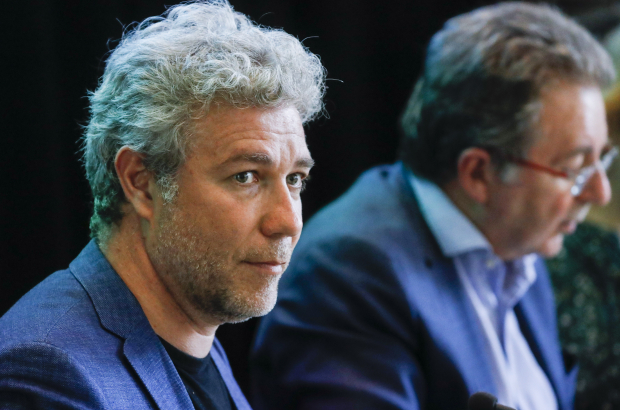- Daily & Weekly newsletters
- Buy & download The Bulletin
- Comment on our articles
Brussels plan to buy agricultural land outside city causes concern
The Brussels region is considering buying land on the outskirts of the Belgian capital to grow fruit and vegetables for the inhabitants of the city “in the coming months and years”, according to an announcement from Brussels environment minister Alain Maron on Monday.
Maron wants to preserve biodiversity and promote local agriculture that could feed part of the Brussels population, in line with the concept of the short food supply chain which is characterised by a short travelling distance or as few intermediaries as possible between producers and consumers.
"The region will make this farmland available to farmers in order to promote short supply chains,” Maron said. “Discussions are under way,” he added, without going into more detail.
The announcement was met with surprise and concern from politicians, farmers and agricultural unions alike.
“So, the Brussels region is going to buy land in Wallonia and Flemish Brabant to feed the people of Brussels?” wrote Alexia Bertrand, the leader of the liberal MR (Mouvement Réformateur) in the Brussels parliament, on Twitter. “The region must first manage how little money it has to meet its basic obligations (jobs, infrastructure)."
"I was amazed to hear Alain Maron's statements," said Walloon agriculture minister Willy Borsus. "Farmland is already extremely expensive and access to land is very complicated in Wallonia,” he added. “That a region announces an agricultural purchasing policy that will increase this pressure at the expense of farmers, farmers and market gardeners, is incredible." Borsus also condemned the "total lack of consultation of the Brussels-Capital region with the Walloon region."
"The Walloon region has a very active policy of supporting agriculture, agricultural diversification, the placement and employment of young people in the sector, and the deployment of market gardening,” he added. “The Brussels region will be getting in the way of this long-term, structured and concerted action."
Federal agriculture minister David Clarinval also warned against the purchase plan and the impact it could have on land prices. "This announcement of the purchase of land by the Brussels region testifies to a medieval concept of the redistricting and operation of our country," Clarinval said. "I also regret the perceived rejection of the post-2020 Common Agricultural Policy, which wants to give young farmers priority access to land and support to small and medium-sized farms."
"This approach would further exacerbate the soaring price of land, which is contrary to the objectives of family farming and local agriculture," added Clarinval. "I therefore call on the Brussels environment minister to resume dialogue with his Walloon and Flemish counterparts. I have no doubt that this will be an opportunity for him to discover the wealth of local producers in this country, which are just waiting to find opportunities in Brussels or elsewhere."
In their reaction to Maron’s announcement, the Walloon Federation of Agriculture (FWA) proposed to the Brussels government to act as an intermediary between the regional authority and the farmers if it wishes to source directly from Walloon farmers.
The FWA said it was "surprised and shocked" by Maron's plan. "Throughout the Covid-19 crisis, Walloon farmers (like those in Flanders for that matter) continued their work and continued to supply the population with quality, varied production, respecting all the strict environmental and health standards to which they are subjected," the federation said.
The FWA insists on the independence of farmers and advocates the model of family farming "where the farmer and his family are economically independent, make decisions, control management and provide the bulk of labour and capital". One of the objectives of this project (initiated in 2016, under the previous legislature) is to make this land available to farmers or market gardeners for sustainable production, oriented mainly to the needs of the city, in a short supply chain.
The United Federation of Breeders and Farmers' Groups (FUGEA) also fears that the initiative will further exacerbate farmers' difficulties in accessing land.
"The Walloon and Flemish agricultural land markets are already clogged (only 1% of the land has changed ownership in 2019) and there is little or no access for the majority of farmers as the land is too expensive,” FUGEA said in a statement. “There is concern that the presence of a region among potential land buyers will exacerbate, however unintentionally, this situation.”
In FUGEA’s view, the project is totally out of step with the current challenges of the agricultural world. One of the basic principles of farm leases is freedom of cultivation, it said. The Brussels region will therefore not be able to dictate the strategic direction of the operators of the acquired land unless it "coercively imposes its influence".
"FUGEA is hopeful that the policy of public authorities in terms of food supply will not be modelled on the dubious strategies of private companies," it concluded.
In the face of these reactions, the Brussels environment minister clarified the context of his announcement in a statement. In line with the Good Food Strategy, which aims to produce 30% of fruit and vegetables for its inhabitants by 2035, "Brussels acts first on Brussels territory, but does not forbid itself, in consultation with neighbouring regions, to acquire or support the acquisition of land on the periphery, in a food belt area," Maron explained.

















Comments
Very "smart", and then, when (you make sure) it doesn't work out well, 1 big company will step in and save the day, meanwhile becoming the biggest player in farming industry
Is this guy the "smartest" in his family?